Nankai University Warmly Welcomes 2020 Postgraduate Freshmen
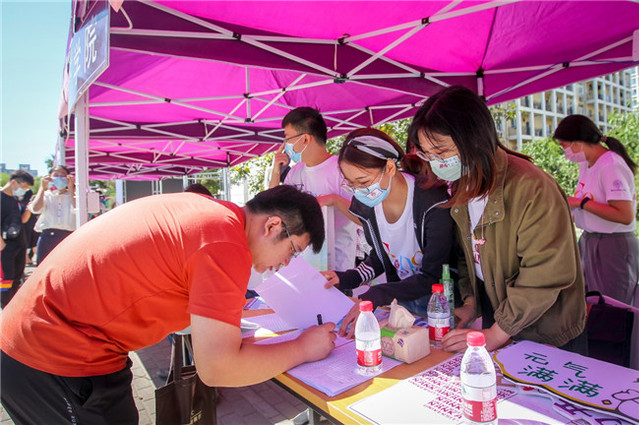
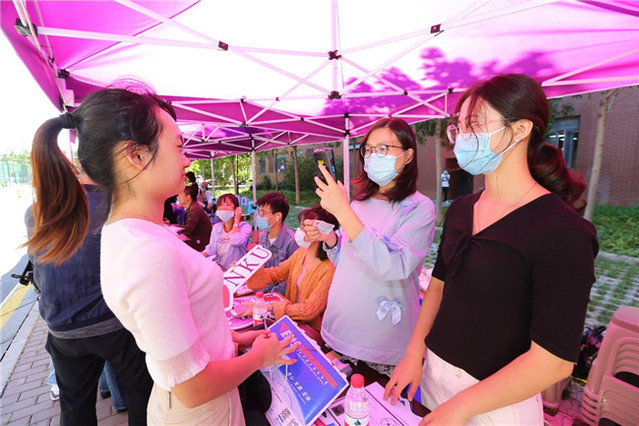
On September 17, a cool and sunny day, Nankai University warmly welcomed the postgraduate freshmen of the year 2020.
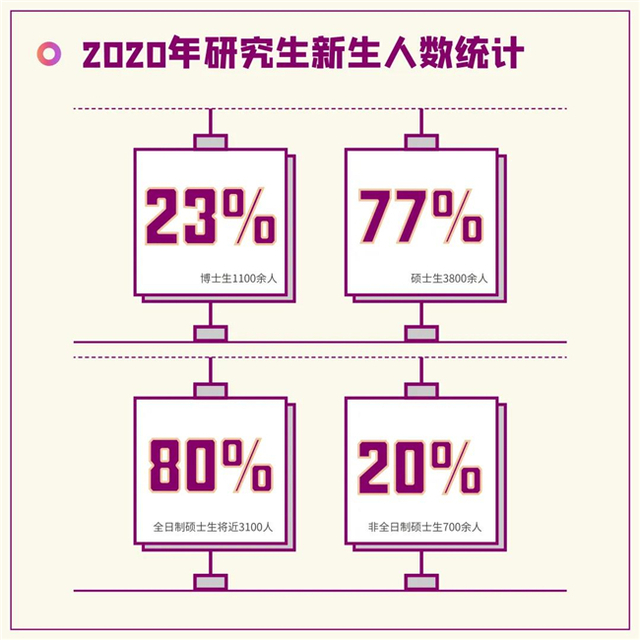
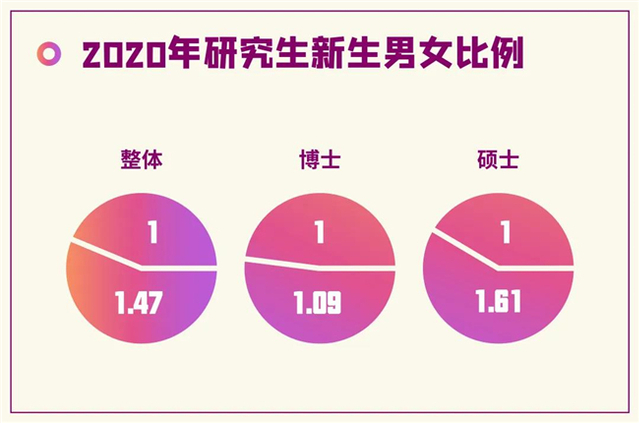
As shown in the big data provided by the Department of Graduate Student Affairs, this year Nankai University has enrolled more than 5,000 postgraduate students, of which 23% are doctoral students, 77% are master’s students, 80% are full-time master’s students and 20% are part-time master’s students. Students are from all over China, of which the students from Shandong, Hebei and Henan form the majority. The proportion of CPC members is over 30%. According to statistics, the overall male-female ratio of the postgraduate freshmen is 1: 1.47, of which the male-female ratio of doctoral students is 1: 1.09, and that of master’s students is 1: 1.61. Among them, the college with the highest proportion of male students is the College of Computer Science, and the college with the highest proportion of female students is the College of Foreign Languages. In terms of age, the age span of doctoral students is relatively large. Most of the doctoral students are between 22 and 30. Among them, 5 doctoral students are under the age of 21, while most of the master students are between 22 and 25.

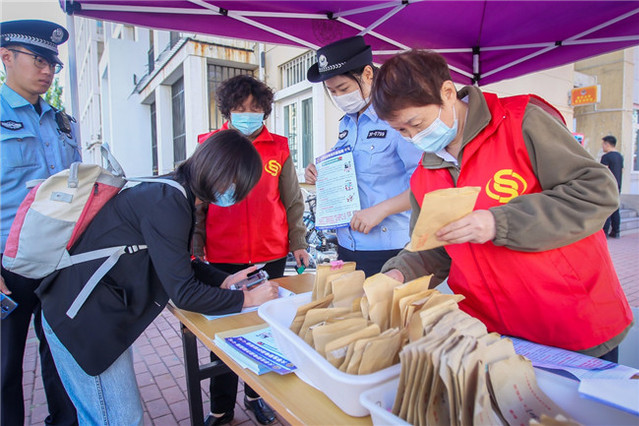
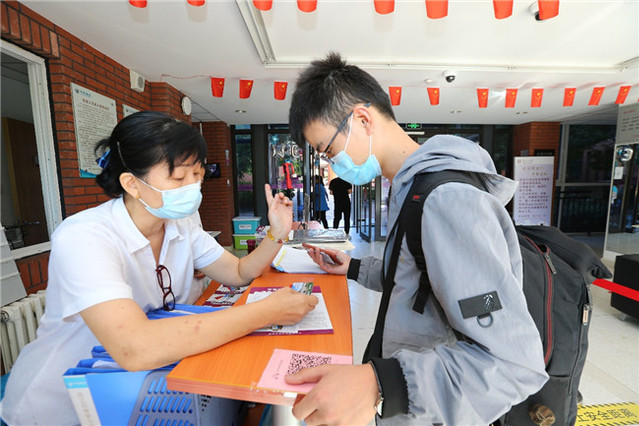
From today, postgraduate freshmen of the year 2020 are going to start their new journey of study and research at the beautiful Nankai campus.
To coordinate and manage epidemic prevention and control as well as the work of welcoming students, this year the university established postgraduate registration points in the dormitory areas of the two campuses to help freshmen quickly finish the registration and check-in process and practice scientific epidemic prevention and control completely to start the term safely and in good order.

At 8 o’clock in the morning at registration points, the reporters saw the illustrations were clear and easy to understand and the process was in order. Teachers and student volunteers’ passionate words and considerate service made freshmen feel at home.
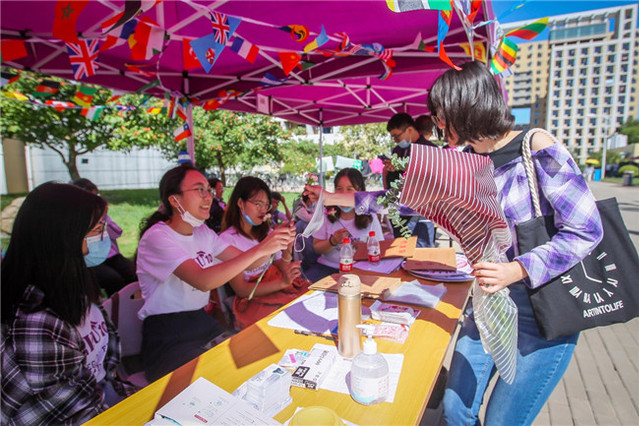
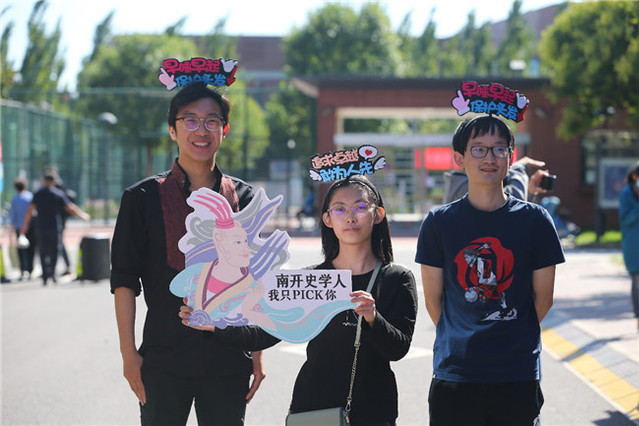
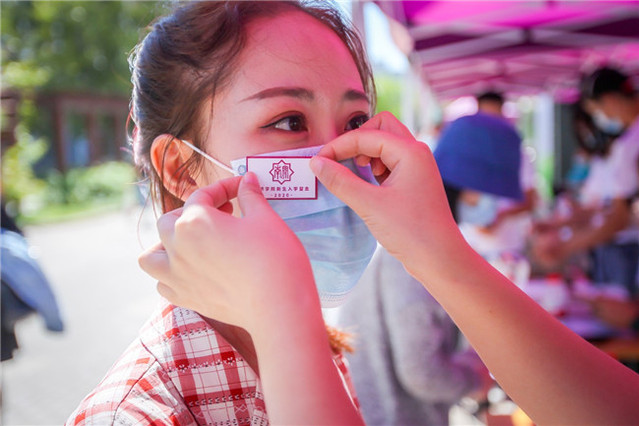
At the registration point of the College of Foreign Languages, the booth was decorated with flags of different countries and welcome banners of different languages. Every freshman also received a purple carnation. The College of Economics also prepared mask stickers with notices of “Nankai University”, Nankai’s logo and “Stay healthy in the new semester” to kindly remind the freshmen.
In the coming of the Mid-autumn Festival, the University also prepared a gift for freshmen who register in the University through the green channel. It was a voucher for a Nankai mooncake, to make sure that they would enjoy a warm and happy festival. The registration points also set up rest areas for students and their parents.
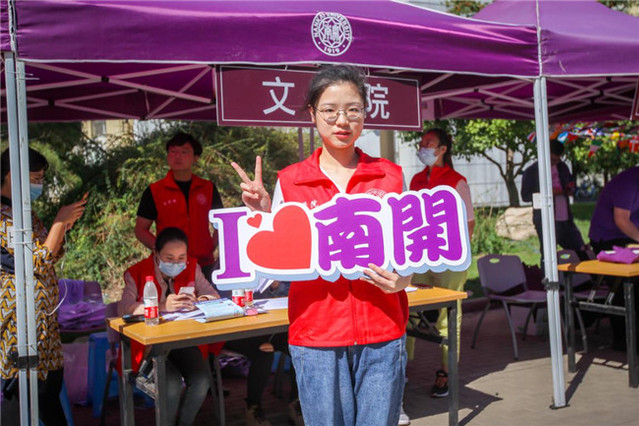
Yilin Gong from the School of Literature is a 2020 freshman as well as a member of the student volunteers. With an excellent score, she was recommended to continue her study in the Department of Communication at Nankai. She said, “I'm very happy to be able to spend the next three years at Nankai, which I love. This is a university with a long history, warmth and happiness. Entering the postgraduate stage, I will cherish my time at college, continue to work hard and finish my studies in a down-to-earth manner.”
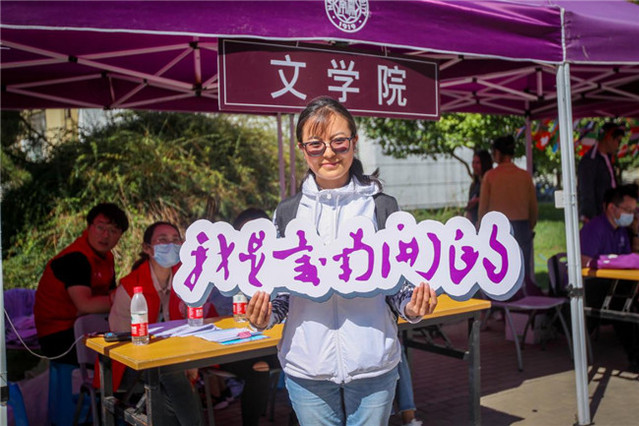
With the assistance of teachers and volunteers, Tibetan girl Tamdrin Lhamo from Kangding City, Ganzi Autonomous Prefecture, Sichuan Province, successfully finished her registration. She was recommended to Nankai University from the Minzu University of China and has a different sense of familiarity with Nankai. She said, “I like the atmosphere at Nankai very much. I have participated in the ‘Summer Workshop of Research Methods on Chinese-Tibetan Language’ held by the College of Literature for two consecutive years. I learned that Nankai has a long history of studying ethnic minorities. I feel very lucky and in the future, I will learn professional knowledge, do more field research, help teachers complete research, and continue to study my favourite major of linguistics.”
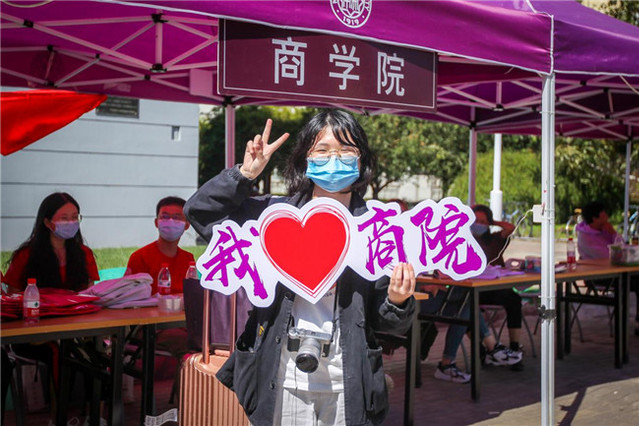
At the registration point of the Business School, Sinuo Fan from Zigong, Sichuan Province, finished the registration on her own. She said happily, “My goals are clearer when I start my postgraduate study. I wish I can have a smooth and successful life in the future. I will live up to my time and gain as much knowledge as I can.” Colleges and schools also prepared gift packs with disciplinary characteristics for freshmen, thus the registration becomes the “first class” for freshmen after they entering the university.
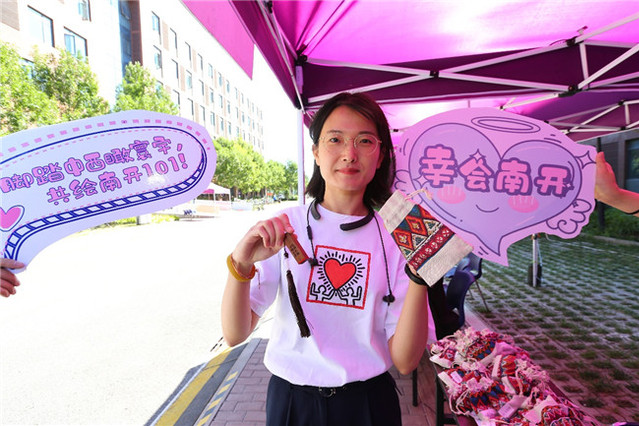
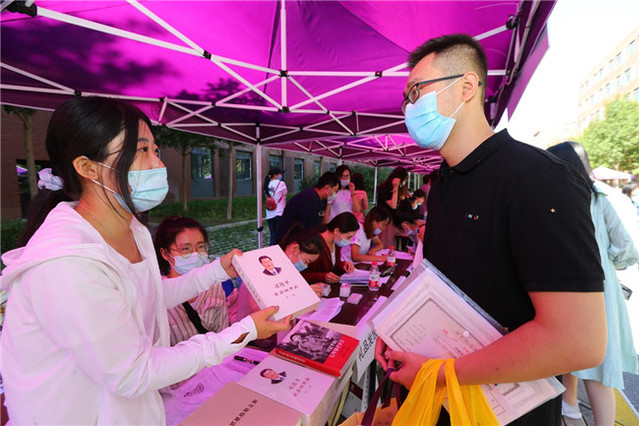
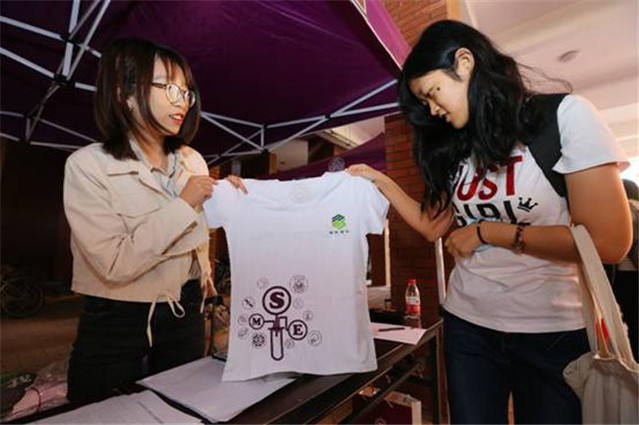
The College of Chinese Language and Culture sent a name seal for every freshman engraved with the University’s motto and encouraged them to integrate Chinese and western cultures and publicize Chinese civilization in their future study and work. The School of Marxism gave the third volume of “Xi Jinping’s Talk about Governing the Country” to every freshman and taught students to read the original book, understand the principles, learn theories and guide practice. The College of Electronic Information and Optical Engineering prepared a gift pack with a manual of advanced experience to help the freshmen. The College of History prepared an “academic welcome” with academic reports about the War of Resistance and the Palace Museum.
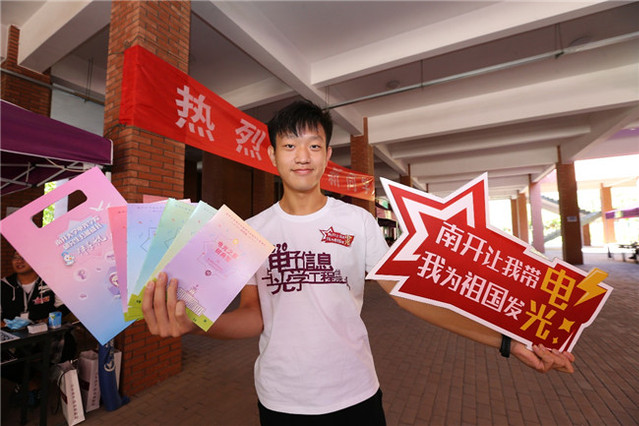
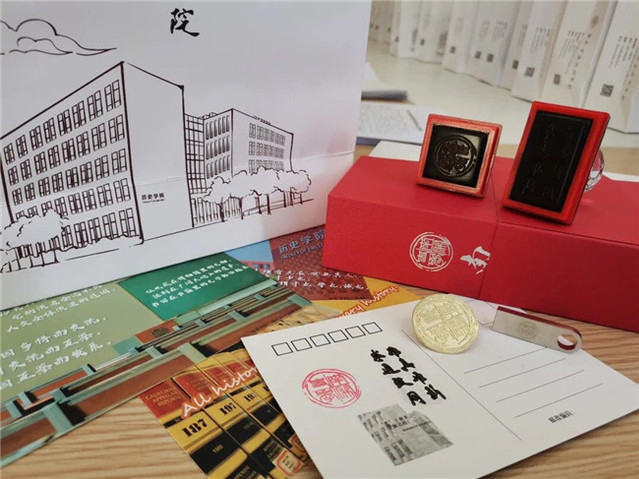
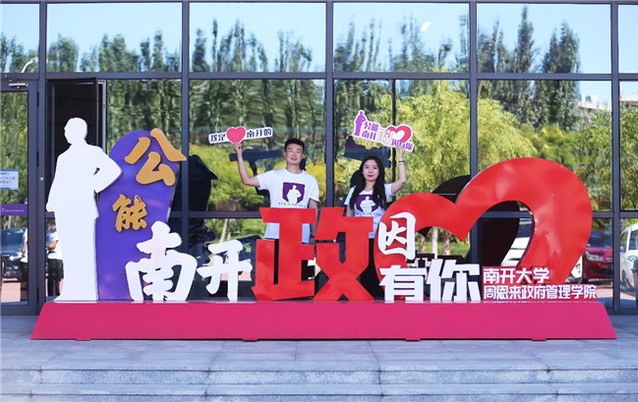
Starting from June 2019, Nankai University has launched the reform of the postgraduate student award system in order to comprehensively improve the level of scholarship and assistance for all postgraduate students in the University, establishing a financial assistance system in matching with first-class talent cultivation.
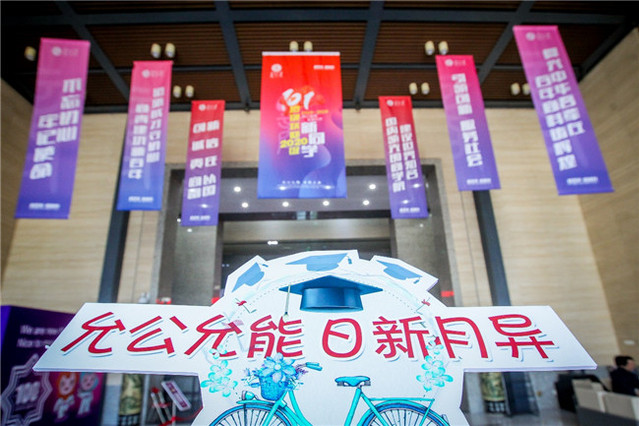
The purpose of Nankai University’s scholarship reform is to encourage postgraduate students to devote themselves to academic research and climb the peak of scientific research, form a competitive incentive mechanism and a long-term guarantee mechanism conducive to improving the quality of postgraduate education, and effectively stimulate vitality of innovation of postgraduate students so that they would make more contributions to the construction of China as an innovative country and a world science and technology power.
( Reported by Junhui Wu and Jingqiu Hao, Photographed by Qiqi Zong and Junhui Wu, Translated by Yuchen Shi, Edited by Davide Francolino and JianjingYun)









